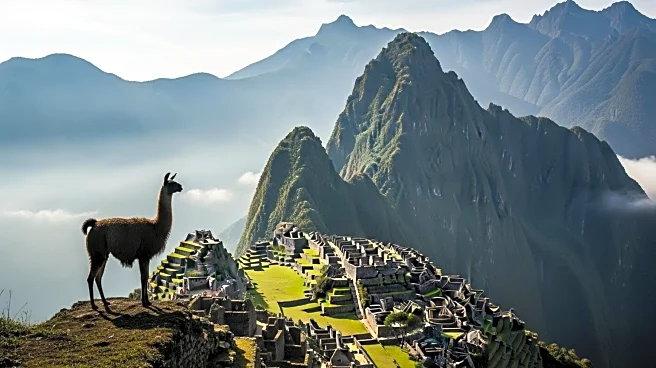What's Happening?
At least 900 tourists have been stranded near Machu Picchu following protests that led to the suspension of train services. The protests, which involved blocking tracks with rocks, have disrupted access to the UNESCO World Heritage site located in Peru's Cusco region. The protests are centered around demands for representation in the bidding process for a new bus operator. While 1,400 people were evacuated earlier, many remain in Aguas Calientes, the nearest town to Machu Picchu. The site attracts approximately 4,500 visitors daily, making it Peru's most popular cultural destination.
Why It's Important?
The disruption at Machu Picchu highlights the impact of local protests on international tourism, a significant economic sector for Peru. The protests could affect the site's reputation as one of the New Wonders of the World, potentially leading to decreased tourist interest and economic loss. The situation underscores the importance of addressing local grievances to maintain the site's accessibility and preserve its status as a major tourist attraction.
What's Next?
The Peruvian government may need to engage with protestors to resolve the dispute and restore transport services. Failure to address the issue could lead to prolonged disruptions, affecting tourism revenue and the site's global standing. Stakeholders, including tourism operators and cultural heritage groups, are likely to push for a swift resolution to prevent further economic and reputational damage.











